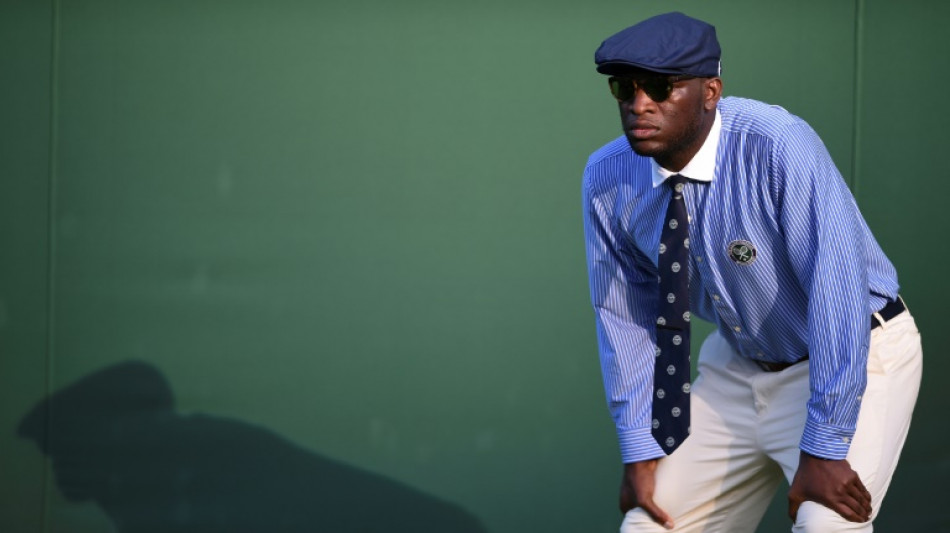

Wimbledon line judges' future uncertain as Grand Slam embraces AI
Wimbledon technology chiefs say line judges are safe -- at least for now -- even as the grass court tournament embraces artificial intelligence.
The All England Club and global tech giant IBM on Wednesday announced new AI features for the championships, which start early next month.
A tool using generative AI technology will provide audio commentary for match highlights videos on the Wimbledon website and app.
And a "draw analysis" feature uses AI to define how favourable the path to the final might be for each player in the singles draws.
Bill Jinks, technology director at the All England Club, said Wimbledon had to work hard to stay at the cutting edge.
"Wimbledon is the oldest Grand Slam tournament and we have a rich heritage and traditions that go back all the way to 1877 and that's one of the main reasons people keep coming," he said.
"It's a huge part of that experience for people -- players and fans alike.
"But you can't do that without technological innovation. We wouldn't have remained at the pinnacle of the sport without that technological innovation to keep us there."
Wimbledon has a unique place in the global tennis calendar, with players and fans attracted by the hallowed traditions of the All England Club.
Smartly dressed umpires and line judges are as much part of the experience as strawberries and cream and the all-white kit that players must wear.
But how much longer can they survive in the light of galloping technology?
The men's ATP Tour in April announced tour-wide adoption of electronic line calling from 2025, a role traditionally carried out by on-court line judges, in a move to "optimise accuracy and consistency across tournaments".
Jinks said line judges would still be part of the scenery at the Grand Slam in London this year but he was unable to give a long-term guarantee.
"In 2023 we've definitely got line judges," he said.
"Line-calling technology has changed. We've been using the challenge system (players are able to query a limited number of calls, using video technology) since 2007 and it currently works for us.
"Who's to say what might happen in the future?"
Jinks was more definitive when asked whether there could be a future with an AI umpire who could not be argued with.
"The answer's no," he said.
- Fan engagement -
Chris Clements, digital products lead at the All England Club, said technology had changed the way people engaged with sport.
"For many of us growing up, Wimbledon meant everyone gathering around the television together in the living room," he said.
"Today, there are fewer of those family moments consuming content so we need to find other ways to reach people and create the next generation of life-long Wimbledon fans."
Kevin Farrar, sports partnerships leader for IBM UK and Ireland, said there was a "buzz" around AI at the moment, shown in all the publicity around ChatGPT.
"What we are doing is basically taking massive amounts of data and transforming that into insights that we can then share with fans around the world through the digital platforms, through wimbledon.com and the official apps," he said.
"Our challenge each year is to make sure that we get the right balance between tradition and heritage and technology and innovation."
He said the aim was to extend the commentary feature to full games but insisted there would still be room for human input.
"I see AI as very much complementing the human element," he added. "You can't replace John McEnroe doing commentary. That human element always needs to be there.
"It's about providing commentary in the future on matches that currently don't have human commentary so it's on the seniors, the juniors, the wheelchair matches.
"So in all instances it's a case of complementing the human element rather than replacing it."
C.Moreno--RTC



